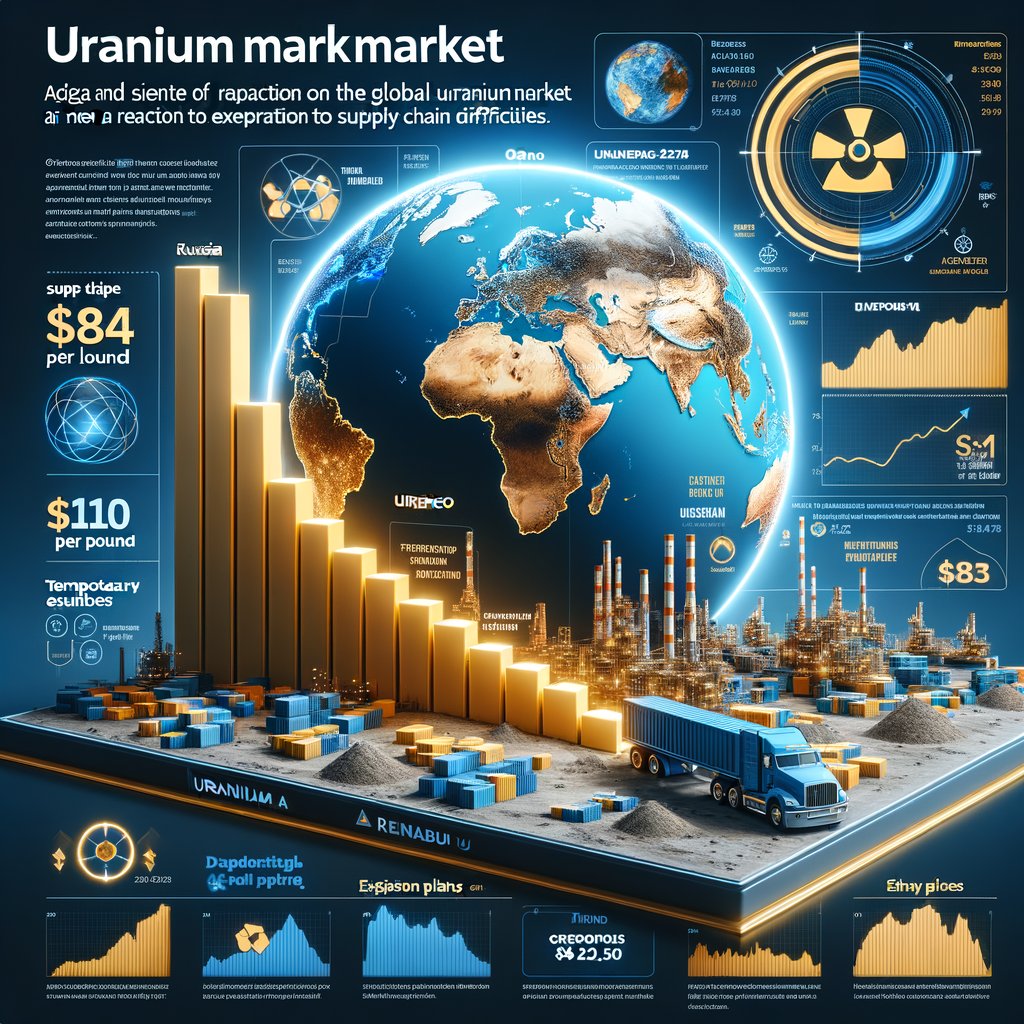Image created by AI
Uranium Prices Surge as Russia Imposes Export Restrictions to the US
In a significant shift that has impacted uranium markets globally, Russia, the world's foremost supplier of enriched uranium, has introduced temporary export restrictions to the United States. The response follows the US's decision to ban Russian uranium imports. This strategic move has seen uranium prices elevate, reflecting heightened concerns over supply security and its implications on the energy sector.
The Russian decree, with certain exemptions for companies authorized by the export control watchdog, immediately led to a rise in bids for November 2025 delivery of uranium. According to UxC, a prominent market research firm and consultancy, the bids increased by $4 to reach $84 per pound post-announcement.
Jonathan Hinze, president of UxC, acknowledged the market's cautious reaction, with many sellers holding off on making offers until they fully understand the ramifications. Indeed, the overall uncertainty is visible in the fluctuation of the weekly spot price of uranium, which dipped slightly to $77 per pound compared to higher levels seen earlier in the year.
Investor response was quick to the news, with jumps observed in the share prices of uranium mining companies. This investor confidence echoes the sentiment of industry experts like John Ciampaglia, CEO of Sprott Asset Management. Ciampaglia suggests the potential for uranium prices to reach $100 per pound in the near term. Notably, the demand for uranium is less sensitive to price changes, which could sustain upward price movement.
This economic episode underlines the strategic importance of uranium in the global energy market. Russia's dominance is clear, boasting approximately 44% of the world's uranium enrichment capacity. The United States, reliant on foreign imports for its nuclear fuel—previously a substantial 35% sourced from Russia—is now facing serious supply chain challenges.
Responses to the restrictions have varied, with some industry players like British-Dutch-German company Urenco, which runs the sole commercial uranium enrichment facility in New Mexico, the US, announcing expansions. In addition, French nuclear firm Orano disclosed potential plans to start uranium enrichment on American soil in the early 2030s.
RBC analysts provided a broader perspective, suggesting that the immediate impact on uranium imports into the US might be minimal. They project that due to preexisting waivers granted by the US Department of Energy, Russian uranium exports to the United States could continue with negligible disruption until 2027.
This development is likely to push the nuclear energy sector to seek alternative sources and expand local capabilities, ensuring long-term resilience against geopolitical uncertainties. As the situation unfolds, Satori News will continue to monitor the market and provide updates on this critical commodity.










